|
kan·ga·roo care noun
One of my favorite memories of the 65 long days that my preemies spent in the NICU happened during Kangaroo Care. About 2 weeks after my 28 weekers were born, I was finally able to hold them both together. A lovely reunion for two babies that missed snuggling each other. It was no easy feat to get two preemies comfortable on my chest with all of their leads and wires. A team of nurses placed one baby and then the next, situating them just so under a layer of blankets. And then, one twin’s tiny twig of an arm reached out in a healing hug, and they embraced each other. The monitors were quiet as we all snuggled together. We were going to stay that way for a while. Free DownloadsWhen a preemie is born, so is a parent advocate. ~Ali Dunn, Me Two Books Having a preemie can make you feel helpless. The role you envisioned as a caretaker and parent, is not what you are experiencing. After my twins were born at 28 weeks, I wanted to do everything I could to help them get better. But I didn’t know how. I soon found my voice and learned that it was a very powerful tool. Here are a few ways you can use your voice as a preemie parent. To Advocate When a preemie is born, so is a parent advocate. Parents serve an important role on the care team. While it can be difficult at times, it is so important to advocate for your baby and share your thoughts and concerns. To Bond
Babies can recognize their mother’s voice at 22 weeks gestation. Hearing a familiar voice promotes attachment, produces a calming effect, and can counteract all the background noise from alarms and equipment. Talk or sing to your babies to help build a strong bond. To Relieve Pain New and continued research suggest that maternal speech decreases pain scores and increases oxytocin levels in preterm infants during painful procedures. Your voice can be a simple way to help your baby experience less pain. While it may not always feel this way, your voice is very powerful and can be used in many ways to help your premature baby. Be empowered! How do you use your voice? Originally published at handtohold.com But if the question you were really asking all along was if you were going to be able to make it through, the answer is an easy yes! I had changed many diapers before, but the first time I changed my own baby’s diaper was different. I needed a nurse to show me the process. With my hands inside an incubator, I had to work around wires and tubes. Everything was miniature, and I really had to concentrate to ensure I completed all the steps in the right order. I looked up at the nurse with a nervous smile and asked, “Does this get easier?”
It was Christmas Day, and I was sad to be at the NICU instead of spending my babies’ first Christmas at home with family. After a long scrub of my hands, I entered the NICU to hear today was bottle day. I was going to get to feed my baby a bottle for the first time. The nurse showed me how to hold my baby in an upright position, not in my arms like I had imagined. It felt awkward, and unnatural to me. The actual feeding didn’t go much better. There was sputtering and crying, and several minutes in I was sure more milk had been spilled than drank. I looked up at the nurse with a nervous smile and asked, “Does this get easier?” But I wasn’t really asking about simplicity. A life with twins, preemie twins at that, was not going to be straightforward and uncomplicated. I already knew that. The question of “does this get easier,” isn’t a question of ease... it’s a question of hope. From the moment my twins were born at 28 weeks and admitted to the NICU, my first thought in the morning and my last thought at night was when will they come home. The whole experience was so hard, that I just wanted it all to be over. I viewed discharge day as the end. I naively thought that once my babies were home, this whole “preemie thing” would be finished and things would get much easier. I think every NICU parent wants someone to tell them that everything will be fine. That once your baby is discharged from the hospital all the stress will dissipate and life will be just as it was before. That is certainly what I was hoping to hear. But no one can really answer that question for you. Life with a preemie is all about getting comfortable with the unknown. However, here are a few questions that I can answer... “Will I always feel this fear?” No, that immediate life and death fear will subside over time and be replaced with a fierce determination to protect your child. “Will I be the parent, advocate and caretaker my child deserves?” Yes, you will rise to the challenge. You are everything your child needs you to be, and when you get tired, which you will, you will ask for help. “Will my life ever be the way it was before the NICU?” Nope... you have changed forever, but for the better. Now that I am several years out from the NICU experience, I have a different understanding. I recognize how difficult raising a preemie can be. And for many, the NICU is just the beginning of so many brilliant, but also extremely difficult days. Some of which will be overwhelming and harder that you could have imagined. But I am no longer in search of easy, because that was never really the goal. Finding hope is so much more fulfilling! So if you are still wondering, does raising preemies get easier? Yes...and also no. But if the question you were really asking all along was if you were going to be able to make it through, the answer is an easy yes! You know your baby better than anyone. Speak up, please. They need you! ~ Carley Guill, For the Littlest I'm so excited to share my interview with Carley Guill from For The Littlest. It was great to get to know more about her and her amazing NICU advocacy work. Make sure you check out her blog and connect with her on Instagram. ~ Ali 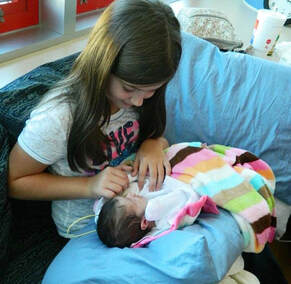 How Did For The Littlest begin? When I was ten years old, my little sister was born prematurely with an obstructed bowel. My family spent 80 days with her as she battled through the NICU, surgery, feeding tubes, ostomies, and constantly beeping IV pumps. It was so foreign to me, but it became so formative. I’ll never forget my mom telling me that there are sick babies that only get held by the nurses, because their families never come; there are babies that get the private room in the back because they’re so sick; there are parents that can only see their babies once a week because the whole region gets transferred here and they can’t pick up and live upwards of two hours away while their baby’s life hangs in the balance. I took what my mom told me and ran with it, because it touched my heart and bothered me at the same time. That's how For the Littlest was born! Though there were good things and bad things about my experience, the NICU is full of miracles, and I want people to know that there are little warriors out there who need advocates to demonstrate awareness and to fight for them. For the Littlest seeks to spark hearts for NICU advocacy, because we have the power to treat these babies and give their families hope. What do you want people to know about life in a NICU? What are the biggest misconceptions about NICU babies? I want people to know that it isn't all bad behind those doors. So often there are nurses and doctors who genuinely love on these babies and care for them so deeply. I know that the thought of such small and seemingly fragile babies is scary for most people, but the NICU can be a force for good in people's lives. It isn't all rainbows and miracles, but goodness, we need to rejoice as much as possible when it is!! The more we know and support our NICU's as advocates, we improve care for babies and we make them feel known and loved. What kind of impact do you hope that your platform (i.e. writing, speaking, research) can have in the NICU community? I hope that For the Littlest can spark a fire for NICU advocacy in people's hearts! There are things that have changed in the way things are done since my family's experience, but there are a lot that haven’t. There are still disparities in distribution of qualified NICUs; disparities that force parents and babies to separate and impede healing. There are still some institutions with visitation policies that alienate siblings and family members. But luckily there are still good nurses, good doctors, and generally good people working in these NICUs, so there is still hope too. Through this platform I hope to change the bad things for the better and show off all of the good things! What inspires you to keep advocating for preemies? NICU babies and their families give me so much hope. I look at my little sister and how much she's thriving and I remember that one day, she was small and fragile like them too. I have so much hope that there's a light at the end of the tunnel for these babies and these families, and I know that advocacy brings that light even closer. What are some of your favorite tools, resources, or gadgets that make a NICU journey easier? My NICU journey was fueled by McNuggets and Top Chef reruns, so I do highly recommend those! Also, I recommend as much of a support system as you can get, even including social media, make it easier - no one is alone! If you have had a baby in the NICU for 1 day or 100 days, you understand the stress surrounding this experience. NICU time is often unexpected and traumatic. It’s hard to manage your day-to-day life when your every thought is preoccupied with worries about your fragile child. Taking care of yourself is the last thing on your mind when you have a baby in the NICU. But the old saying is true, if you don’t take care of yourself, you can’t take care of anyone else. While it may be difficult, it is necessary to prioritize yourself. Self-care doesn’t have to be time-consuming or expensive. Here are four simple ways to care for yourself while you have a baby in the NICU.
Take a Break Long days spent in the NICU are both physically and emotionally taxing. Even if you are not able to be there every day, the time you spend at the hospital is very intense. Schedule time in your day to take a break. A walk around another hospital floor or a quick trip outdoors to sit in the fresh air will do wonders for your stress level. Rethink Your Reading Material One of my favorite things to do while my babies were in the NICU was read to them. I found it very relaxing, and a mutually beneficial way to spend our time together. In fact, studies show that reading to babies in the NICU reduces stress and aids in brain development. But just because you are reading to a baby, doesn’t mean you have to read children’s books all the time. Feel free to indulge in the latest best-seller, that both you and your baby can enjoy. Grant Yourself Permission to Take Time Away I always felt guilty spending free time doing something for myself when my babies were in the NICU. I felt that all my free time should be spent at the hospital. But I am here to tell you, I was wrong. Your baby is safe and well taken care of at the hospital. You can take an hour to chat with a friend or grab lunch with your partner. These things take little time, but make a huge difference in your emotional well-being, which in turn benefits your baby. Multi-Task While You Pump Pumping bedside may give you the best breastmilk yields, but sometimes it is nice to escape from the beeps and buzzes of the NICU. If there is an alternative pumping space, use it periodically. You are already doing something wonderful for your baby by pumping in the first place, so why not multi-task and do something for yourself at the same time. Listen to a podcast that you find entertaining or stream a TV show or movie that you enjoy while you pump. While nothing can take the stress of a NICU stay away, taking care of yourself can reduce it. Self-care may seem unnecessary or even indulgent at times, but it is so important. The NICU experience is a roller coaster, but you will be able to survive the ride if you spend a little bit of time on yourself. originally published on grahamsfoundation.com There were 5 or 6 of us huddled on the sidewalk that circles the park. It was 50 degrees and sunny, and we had all decided to meet at the playground as this kind of weather in the middle of January is too good to let pass without some time outside. I had met these other mothers before, but we were all just beginning to learn about each other. No one knew my story, because I hadn’t shared it yet. The conversation turned to childbirth, and I began to feel a little anxious. I tried not to make eye contact with anyone...and then it happened. Someone asked me if I had an epidural when my twins were born. In my mind, I quickly weighed the options. Tell the truth and risk taking the conversation down a depressing road, or tell a lie. These types of questions just make me uneasy. I understand that the person asking them is just trying to include me in the conversation, but I always feel like I’m put in an awkward place. I decide to go for the truth. I responded that I actually had a spinal block because I needed an emergency c-section at 28 weeks. The laughter and chatter of the group paused, someone said I’m sorry and then the topic of conversation changed.
Several days later, I was sitting in the designated parents’ area, waiting to retrieve my kids from their daily activities. A small group of moms were standing around a woman who was clearly very pregnant. She was describing her discomfort and commiserating with the other ladies gathered there. As I approached I heard them comparing end of pregnancy symptoms and I almost turned around and headed the other way. But it was too late and I had already been brought into the conversation. In my head, I was thinking that I would have loved to have made it to the uncomfortable phase of pregnancy. That no physical discomfort can compare to the emotional anguish that having a baby in the NICU brings. But I won’t say anything, not today. It can be very hard to share your story with people that haven’t lived through the NICU. I want to be brave and open up about what my family went through, because I know it helps others. But my experiences are often met with sadness and pity. It can change the mood of a conversation from humorous and fun, to depressing with a simple mention of the NICU. And while that is understandable, that is not how I view the birth of my preemie twins at all. From the outside, it’s often difficult to imagine the beauty and wonder that watching a tiny baby fight for their lives can bring. A journey that has provided me with the invaluable gift of perspective and gratefulness. My story and all NICU stories are the ultimate tales of hope and triumph over adversity. And these stories make a difference to new preemie parents everywhere, who are entering NICUs for the first time. So while it might be difficult to share please remember that the messenger matters, and your story can only be told by you. This article was originally published at www.handtohold.org My preemies’ first “outfit” was not a family heirloom or a super cozy sleeper. It wasn’t even something that I picked out.
The first thing that my babies wore were tiny knitted hats of soft pastel yarn that had to be handmade by a volunteer because their heads were too small to fit store-bought hats. A hat was the only thing my babies could wear for weeks after their birth. Something that I didn’t realize before my twins were born at 28 weeks and admitted to the hospital, was that babies in the NICU do not wear clothes. The sickest and smallest of babies are only in specially designed preemie diapers, the tiniest diapers you can even imagine, that are still too big for some. They don’t need clothing for warmth, as they are in a climate-controlled incubator. The clothing only gets in the way of the leads, wires, and tubes that are necessary to keep these little ones alive. Seeing my bare babies was another reminder of how this wasn’t typical. It was a visual cue that I was not a normal parent, and I couldn’t do the very basic task of dressing my babies. Before our NICU experience, I never thought my babies’ first piece of clothing would be considered a milestone. I had thought about finding a special outfit for leaving the hospital. But I never thought I would be so emotional over a tiny white cotton button-up sleeper until the day I arrived at the NICU and saw my babies in clothing for the first time. When a NICU baby is finally allowed to wear clothes, it is a big deal! It meant that they were getting better, growing, and requiring less medical intervention. It meant that I would be able to change their clothes, and for a brief moment, I would feel like a normal parent. I could momentarily forget about the wires and tubes, the monitors and machines, and just enjoy this nurturing moment with my child. Years later, I still have the tiny preemie clothes that my kids wore in the NICU. I keep thinking that I should donate them, but I just can’t bring myself to do it. They are so much more than sleepers and onesies, they are a symbol of all my family has been through. And it’s not just those preemie clothes that are special to me. Anytime they grow out of a pair of jeans or size up in a new shirt, I’m reminded how far they have come and how much they have accomplished just by being alive. There are certain milestones that every parent dreams about, like the day their child starts walking or says their first word. But if you are the parent of a NICU baby, you quickly learn about a whole new set of milestones that you never even knew existed. Milestones in the NICU are measured in grams and milliliters. So if you are not naturally a person who notices and celebrates the smallest of victories, you soon will become one. A NICU baby has a lot of milestones to conquer well before the first steps are even considered. And while drinking their first bottle or wearing clothes for the first time might not seem like something special, for NICU babies, these accomplishments are sure something to celebrate. While it is impossible to prepare emotionally for having a baby in the NICU, at the very least, you can feel that you have what you need to make it through each day. I never packed an overnight bag for the birth of my babies. At 27 weeks, I was put on unexpected bedrest and spent the next 8 days at the hospital. I was admitted after a routine OB appointment, so I didn’t have time to collect items that would have made my stay more bearable. On the 8th day, my twins were born prematurely and taken to the NICU where they stayed for the next 2 months. During that time, I developed an all-day everyday NICU routine. The hospital that was caring for my babies had a “traditional” NICU that didn’t allow for a private room or space for parents to stay the night. It became a daily task to pack a bag with the things I would need to survive the day at the NICU. Here was what helped me care for myself and my babies during this time.
Loose-Fitting Clothes Life in the NICU was stressful, so I made sure my outfit was not. Comfortable pants that didn’t rub against my c-section scar were a must. I also wore oversized shirts or tops that could be unbuttoned to facilitate kangaroo care and frequent pumping sessions. I always wore freshly laundered clothes to help prevent the spread of germs to the NICU. Journal/ Notebook There is a lot of important information to keep track of in the NICU. I had a small notebook that I used to jot down questions I wanted to ask the health care staff. I also used this book to record my babies’ milestones and accomplishments. There are also several organizations that make journals specifically for the NICU experience that are great to have around. Camera The birth of my twins certainly didn’t go as I had expected, but these were still memories that I wanted to remember. I used my phone to snap photos, and occasionally I would bring my DSLR camera into the NICU as well. I guarantee you will be so happy to have those photos to look back on. Food/ Water As a pumping mama, I needed a constant supply of food and water. I didn’t want to leave the floor to go to the cafeteria, and sugary snacks from the vending machine left me unsatisfied. I packed healthier snack options and lots of water. Toiletries After hours at the hospital, I sometimes felt disheveled. At those times, I really appreciated having a small bag of toiletry items like a comb, toothbrush, and facial wipes. I also always needed chapstick. The hospital air can be extremely drying. Pumping Supplies When I was pumping, I never left the house without my supplies. The hospital provided a pump, but I needed to bring everything else like an insulated bag, a hands-free bra, and my pump parts (valves, flanges, connectors, etc.). I often needed to pump multiple times while at the hospital, so having cleaning wipes formulated especially to clean pump parts were useful. Book/ Entertainment One of the ways I passed the time at the bedside was by reading to my babies. On days when I was unable to hold them, it was nice to be able to strengthen our bond by reading. It also was a nice distraction from the stressors of the NICU. While it is impossible to prepare emotionally for having a baby in the NICU, at the very least, you can feel that you have what you need to make it through each day. I'm so excited to share my interview with fellow preemie parent Jamie C. Johnson with you on her book launch day! You can find her book Strong Faith: Daily Encouragement for Moms and Families of Premature Babies on Amazon. -Ali "As a result of my NICU experience I have become an advocate. I am on a mission to learn about preemie statistics, resources, etc., more specifically around families of color." ~ Jamie C. Johnson Please share your NICU journey. I gave birth to my son Caleb on September 28, 2018 via emergency c-section. He was delivered at 32 weeks, weighing 4lbs 0.4oz. He stayed in the NICU for 49 days. Caleb is my first child. I dealt with a rollercoaster of emotions as I had no one to talk to about the preemie/NICU experience. Caleb had his ups and downs with weight, his heart rate & his breathing. It was hard to find a way to feed him and he not have an alarm. I had a difficult time producing milk which was a major blow to my esteem as a mother. I felt pressure and guilt from the nurses as they kept asking about when I was bringing milk or when I did give milk "oh, is that all?" Having to resort to formula was painful. We are vegetarians and we planned to keep things as natural/organic as possible. Caleb had reflux and would vomit during many feedings. We tried several bottles & nipples. One of the nurses that I absolutely loved shared how some babies responded positively to "thickened feeds" (adding oatmeal to milk). I asked repeatedly to try it and my request was denied. I followed the NICU team's suggestions but I knew it wasn't working. When I told a nurse that it didn't work because Caleb was having bad alarms with me (which he rarely had) I was told that the head of the unit needed to see it not working for herself- which meant more alarms. I felt like they actually wanted him to have alarms. I was so angry that I wasn't respected as a mother. It took having a meeting with the head of the unit for my request to add oatmeal to Caleb's formula to be approved. Once we started it the alarms stopped and he began to gain weight more consistently. The unresolved feeding issue was what kept Caleb from coming home. He passed all of his tests that were necessary for him to be released. He just needed 3 consecutive days of no alarms. To think that not being listened to as a parent not only delayed my son from coming home but also contributed to the many times his heart rate dropped and his breathing slowed is heart breaking. What gave you strength while going through the NICU experience? God was my main source! I prayed so much throughout our NICU journey-believing that Caleb would come home and not have to stay until his original due date. Joshua, my husband was such a rock. He was working the night shift at that time and sacrificed his sleep to ensure I could get to the hospital everyday (I was medically not allowed to drive most of the time as I healed from my c-section). My family & friends were great as well. They held me accountable when needed and even allowed me and supported me during my low days. My mom only missed 1 day at the hospital with me. I found a song that ministered to me and kept me encouraged. I played it in Caleb's room everyday. I also found a book about an amazing boy named Caleb and read that to my Caleb everyday. I am grateful for technology! Being able to FT family and friends made quiet/lonely times conquerable. Tell us about your organization, Build You Up Sisters. Build You Up Sisters was created to provide opportunities for mothers of all walks of life from around the world to connect and support one another through love and sisterhood. We believe in the power of shared experiences to: foster Trust; give Encouragement; develop Relationships; and provide Support. The need for the sisterhood was noticed when our founder, Jamie Johnson became a mother to her amazing son who was born prematurely and was hospitalized for over 40 days. The many experiences she had led her to wonder about those that may not be as fortunate to have the support she did and the desire to connect and support mothers like her. BYU Sisters will soon have a cohort program to help moms become mompreneurs so that they can be financial contributors to their family while being active in their children's lives/education. What inspired your new book? While in the NICU I tried to find a book to help me through the process. I couldn't find anything that I could connect to. One day while spending time with Caleb I heard that I would write the book that I was looking for. From then I began writing out our experience and what I did to make it through as a mom of a premature baby. And just like those NICU days, at some point, I will look back on those hard moments and be so glad we survived them. Before the emergency birth of my twins at 28 weeks, I had never heard of kangaroo care. But after a stint in the NICU, I will never forget the many benefits of this special therapy.
One of my greatest challenges while dealing with the NICU was time. I had waited so long to be a mother. I just wanted my babies out of the NICU and home with me. It was difficult to go to the hospital day after day, and not know when they were going to be released. And just when I thought the end was near, there would be an issue that would put us back at the beginning. Being so focused on the end goal of going home, made the journey that much harder. I found that Kangaroo Care grounded me and allowed me to focus on the present. I would purposely think about the future, and life after the NICU to escape the moment I was in. That moment in the hospital with my tiny babies was sad, but it was precious too. Just because it was hard, didn’t mean I should miss it altogether. Several years post NICU, and this realization still impacts my parenting philosophy. I try not to wish away any moments with my babies, because nothing lasts forever. And just like those NICU days, at some point, I will look back on those hard moments and be so glad we survived them. |

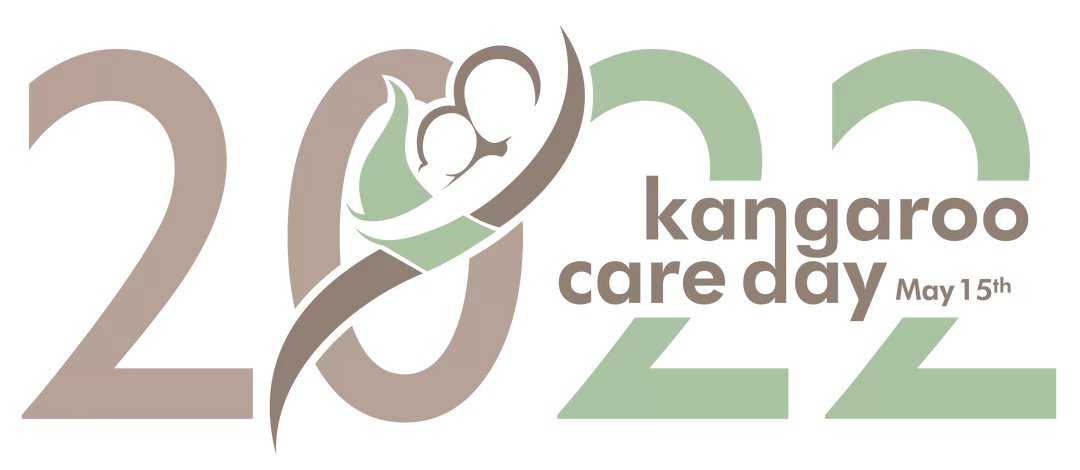
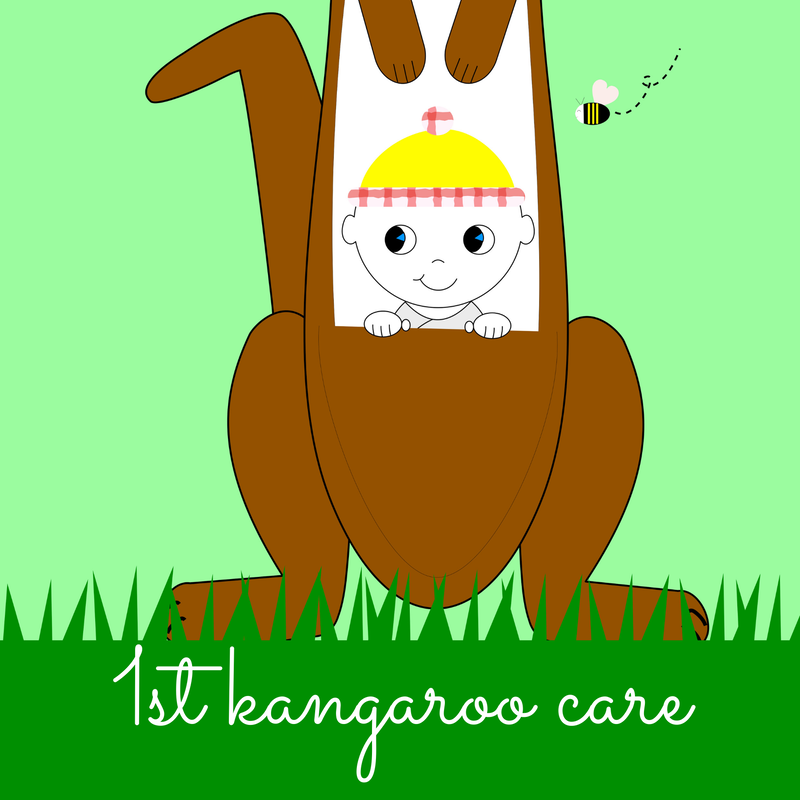
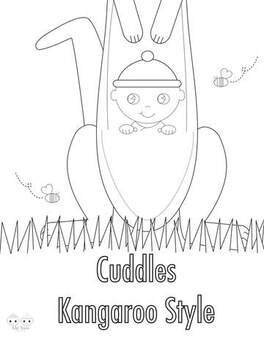
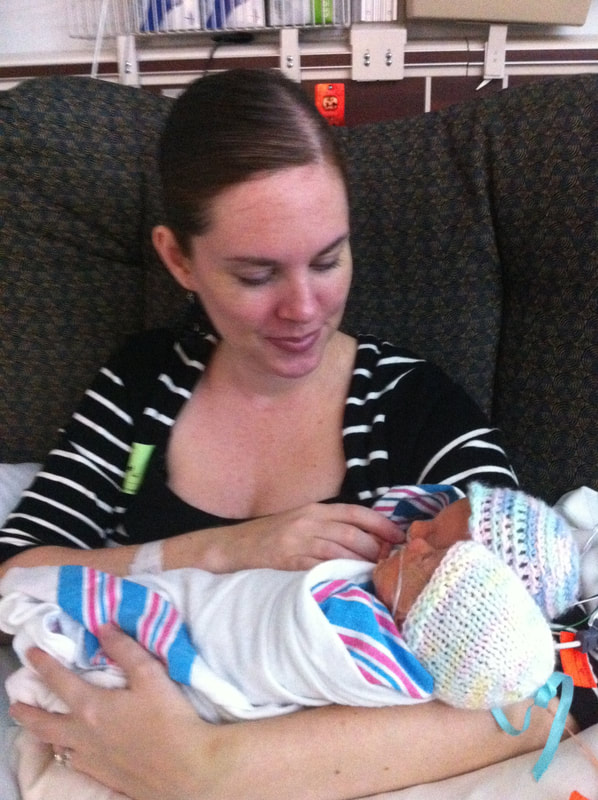

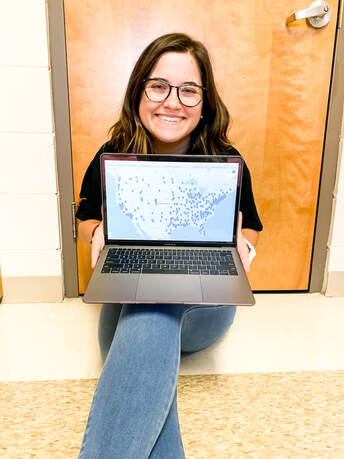
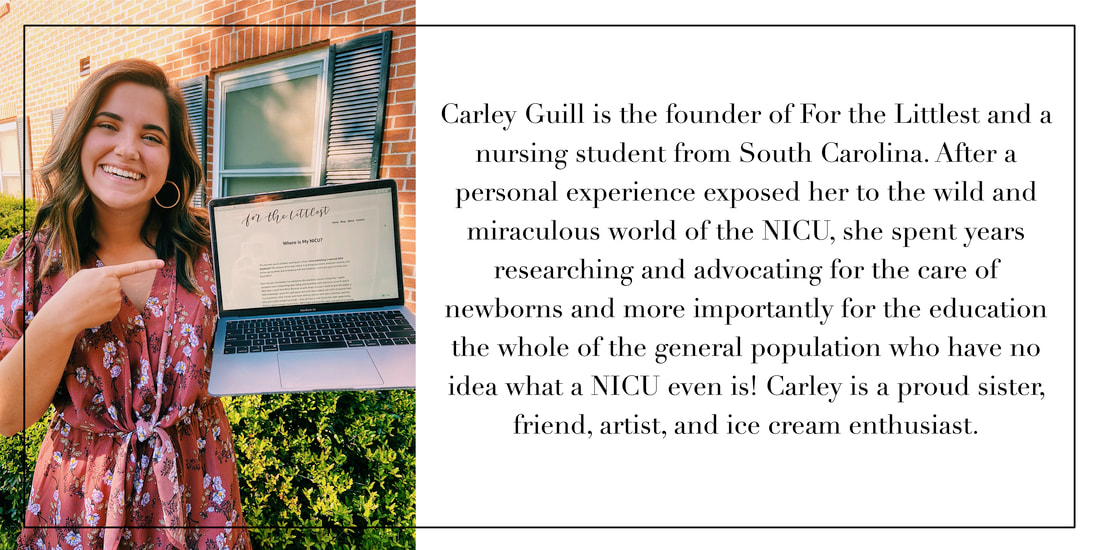
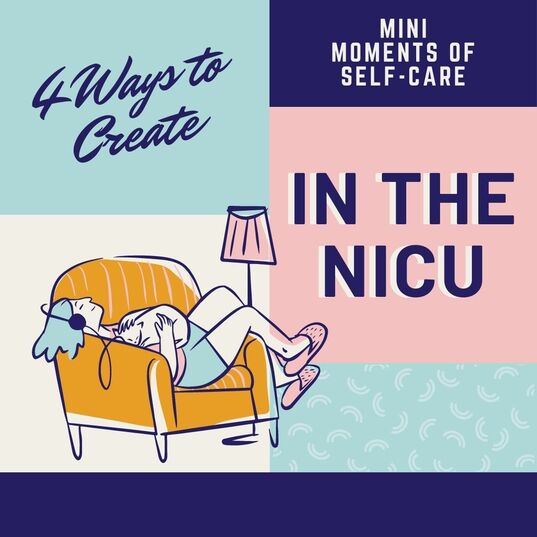
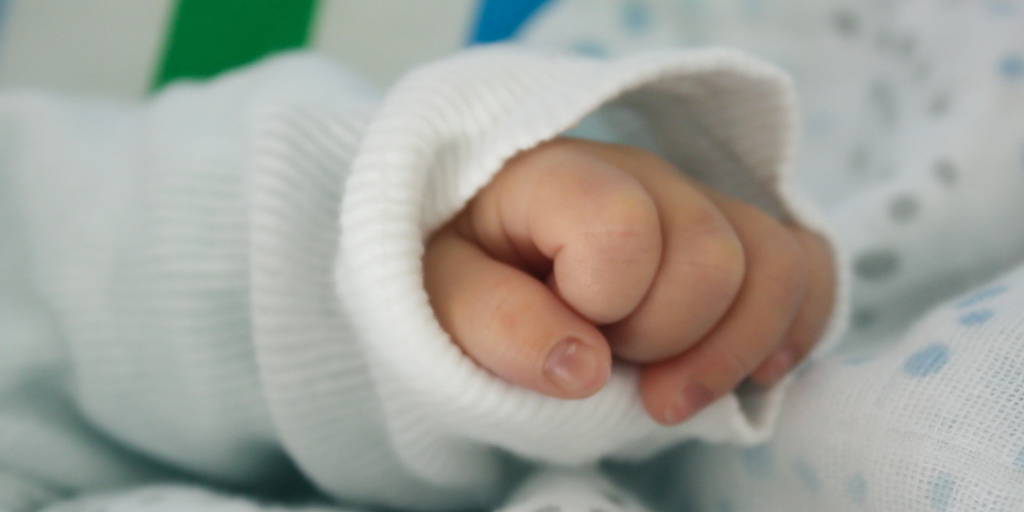
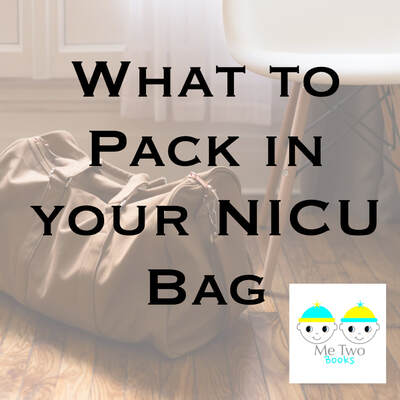

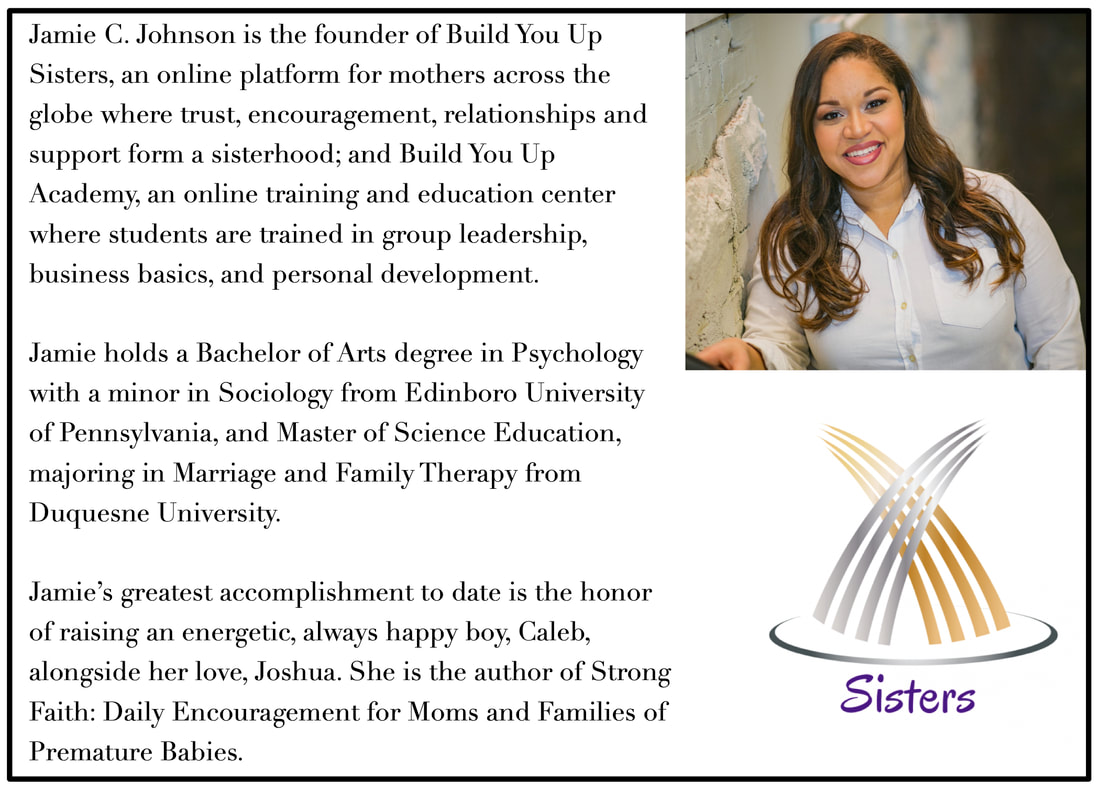
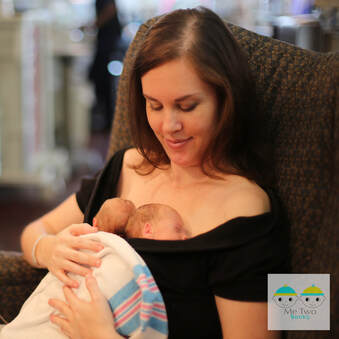
 RSS Feed
RSS Feed